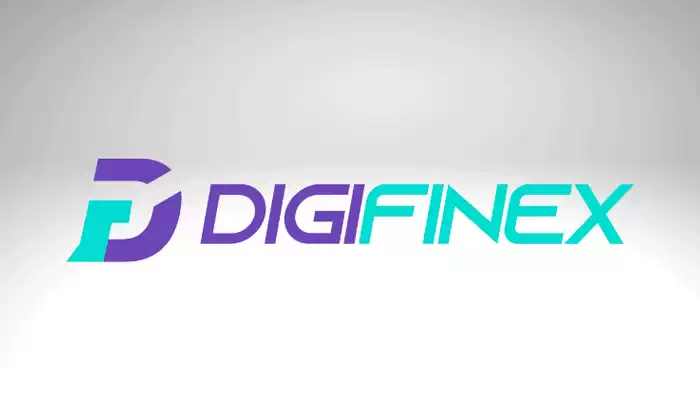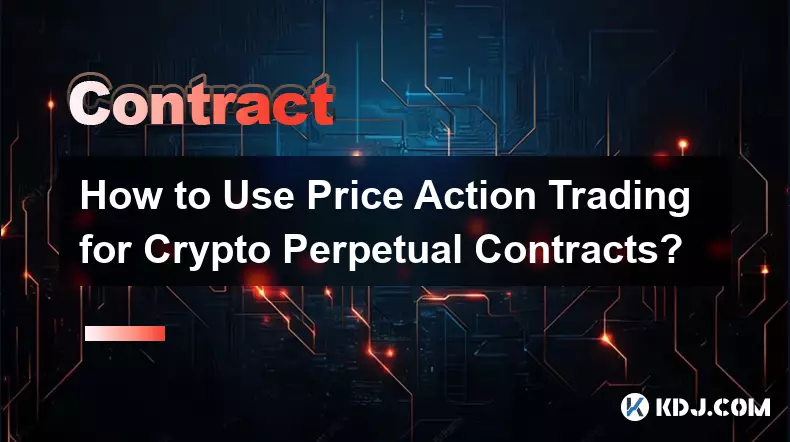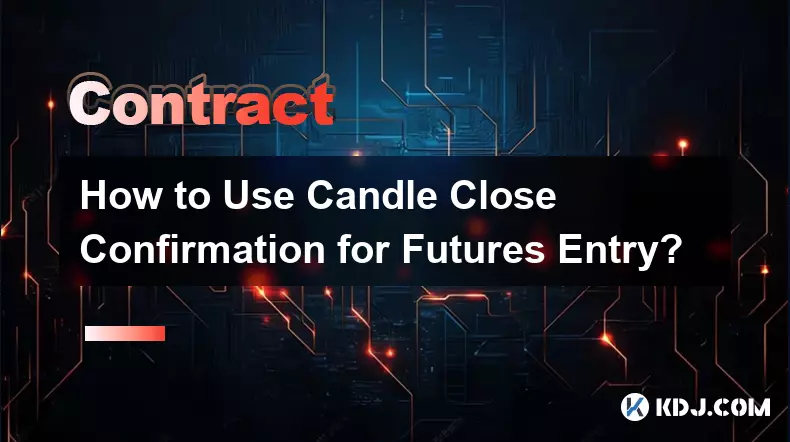-
 bitcoin
bitcoin $87959.907984 USD
1.34% -
 ethereum
ethereum $2920.497338 USD
3.04% -
 tether
tether $0.999775 USD
0.00% -
 xrp
xrp $2.237324 USD
8.12% -
 bnb
bnb $860.243768 USD
0.90% -
 solana
solana $138.089498 USD
5.43% -
 usd-coin
usd-coin $0.999807 USD
0.01% -
 tron
tron $0.272801 USD
-1.53% -
 dogecoin
dogecoin $0.150904 USD
2.96% -
 cardano
cardano $0.421635 USD
1.97% -
 hyperliquid
hyperliquid $32.152445 USD
2.23% -
 bitcoin-cash
bitcoin-cash $533.301069 USD
-1.94% -
 chainlink
chainlink $12.953417 USD
2.68% -
 unus-sed-leo
unus-sed-leo $9.535951 USD
0.73% -
 zcash
zcash $521.483386 USD
-2.87%
DigiFinex Perpetual Contract Tutorial Example
By providing a comprehensive guide on DigiFinex perpetual contract trading, this article empowers traders with the knowledge and insights to navigate this complex market confidently.
Nov 23, 2024 at 10:58 am

Perpetual contracts, also known as perpetual futures, are a popular financial instrument that allows traders to speculate on the future price of an underlying asset without having to deal with the complexities of physical delivery. DigiFinex, a renowned cryptocurrency exchange, offers perpetual contract trading services that cater to both novice and experienced traders.
This comprehensive DigiFinex perpetual contract tutorial will guide you through the intricacies of this exciting trading vehicle. We'll delve into each step involved, providing clear explanations, examples, and practical tips to help you navigate the perpetual contract market with confidence.
Step 1: Understanding Perpetual ContractsPerpetual contracts are derivative financial instruments that track the price of an underlying asset, such as Bitcoin (BTC), Ethereum (ETH), or other cryptocurrencies. Unlike traditional futures contracts, perpetual contracts do not have an expiration date and can be held indefinitely. This flexibility allows traders to maintain their positions for as long as they deem necessary.
Step 2: Choosing a Trading PlatformThe choice of a reliable and reputable trading platform is crucial for successful perpetual contract trading. DigiFinex boasts a user-friendly interface, advanced trading functionalities, and a wide selection of underlying assets. Its competitive fees and secure infrastructure make it a popular destination for traders seeking a seamless trading experience.
Step 3: Funding Your AccountBefore you can start trading perpetual contracts, you need to fund your DigiFinex account with the appropriate cryptocurrency. DigiFinex supports a wide range of deposit methods, including bank transfers, credit/debit card payments, and cryptocurrency transfers. Once your account is funded, you can start allocating funds to your perpetual contract trading wallet.
Step 4: Selecting a Trading PairDigiFinex offers a wide range of trading pairs for its perpetual contracts. You can choose to trade the BTC/USDT pair, ETH/USDT pair, or any other pair that aligns with your trading strategy. It's important to consider the underlying asset's volatility, liquidity, and market trends before selecting a trading pair.
Step 5: Setting Trading ParametersOnce you have selected your trading pair, you need to set the trading parameters for your perpetual contract. This includes specifying your desired leverage level, which amplifies your potential gains and losses. Higher leverage can magnify profits but also increases the risk of liquidations. You will also need to set your stop-loss and take-profit orders to manage your risk exposure.
Step 6: Executing Your TradeAfter setting your trading parameters, you can execute your perpetual contract trade. You can place a long order if you believe the price of the underlying asset will rise or a short order if you anticipate a price decline. DigiFinex provides two order types: market orders, which execute immediately at the current market price, and limit orders, which are executed only when the price reaches a specified level.
Step 7: Monitoring Your PositionOnce you have executed your trade, you need to monitor its performance closely. DigiFinex's real-time charting and market data tools enable you to track the price movement of the underlying asset and make informed adjustments to your position. You can add or reduce your leverage, adjust your stop-loss and take-profit orders, or exit the trade entirely based on market conditions.
Disclaimer:info@kdj.com
The information provided is not trading advice. kdj.com does not assume any responsibility for any investments made based on the information provided in this article. Cryptocurrencies are highly volatile and it is highly recommended that you invest with caution after thorough research!
If you believe that the content used on this website infringes your copyright, please contact us immediately (info@kdj.com) and we will delete it promptly.
- Bitcoin and Tech Stocks Show Tentative Recovery Prospects Amidst Market Volatility
- 2026-02-06 19:30:02
- Bitcoin, IBIT, and the Big Apple's Volume Play: Decoding Institutional Moves Amid Market Swings
- 2026-02-06 19:00:02
- Crypto Markets Take a Dive: Navigating the Crash and Spotting the Next 'Best Coin'
- 2026-02-06 19:20:02
- Crypto Market Plunges: Fear & Greed Index Hits Extreme Lows Amidst Market Panic
- 2026-02-06 18:55:01
- Bitcoin Rebounds Above Key Support Level Amidst Market Volatility
- 2026-02-06 19:20:02
- The Smart Money's Meme: APEMARS Presale Redefines Returns with Staking
- 2026-02-06 19:15:01
Related knowledge

How to Use Price Action Trading for Crypto Perpetual Contracts?
Feb 06,2026 at 03:20pm
Understanding Price Action Fundamentals1. Price action trading relies entirely on raw market data—candlestick formations, support and resistance level...

How to Manage Emotions and "Revenge Trading" in Futures?
Feb 05,2026 at 12:19am
Understanding Emotional Triggers in Futures Markets1. Market volatility directly impacts psychological states, often amplifying fear or euphoria based...

How to Use Candle Close Confirmation for Futures Entry?
Feb 05,2026 at 04:20pm
Understanding Candle Close Confirmation1. A candle close confirmation occurs when the final price of a candlestick settles beyond a predefined level, ...

How to Master "Position Sizing" to Prevent Total Account Wipeout?
Feb 06,2026 at 12:00am
Market Volatility Patterns1. Bitcoin price swings often exceed 10% within a 24-hour window during high-liquidity events such as ETF approval announcem...

How to Analyze Market Sentiment Using the Fear and Greed Index?
Feb 05,2026 at 07:40am
Understanding the Fear and Greed Index1. The Fear and Greed Index is a composite metric designed to quantify prevailing emotional states among cryptoc...

How to Secure Your Futures Account with Anti-Phishing Codes?
Feb 05,2026 at 08:40pm
Understanding Anti-Phishing Codes in Crypto Futures Trading1. Anti-phishing codes are unique alphanumeric strings generated by futures exchanges to au...

How to Use Price Action Trading for Crypto Perpetual Contracts?
Feb 06,2026 at 03:20pm
Understanding Price Action Fundamentals1. Price action trading relies entirely on raw market data—candlestick formations, support and resistance level...

How to Manage Emotions and "Revenge Trading" in Futures?
Feb 05,2026 at 12:19am
Understanding Emotional Triggers in Futures Markets1. Market volatility directly impacts psychological states, often amplifying fear or euphoria based...

How to Use Candle Close Confirmation for Futures Entry?
Feb 05,2026 at 04:20pm
Understanding Candle Close Confirmation1. A candle close confirmation occurs when the final price of a candlestick settles beyond a predefined level, ...

How to Master "Position Sizing" to Prevent Total Account Wipeout?
Feb 06,2026 at 12:00am
Market Volatility Patterns1. Bitcoin price swings often exceed 10% within a 24-hour window during high-liquidity events such as ETF approval announcem...

How to Analyze Market Sentiment Using the Fear and Greed Index?
Feb 05,2026 at 07:40am
Understanding the Fear and Greed Index1. The Fear and Greed Index is a composite metric designed to quantify prevailing emotional states among cryptoc...

How to Secure Your Futures Account with Anti-Phishing Codes?
Feb 05,2026 at 08:40pm
Understanding Anti-Phishing Codes in Crypto Futures Trading1. Anti-phishing codes are unique alphanumeric strings generated by futures exchanges to au...
See all articles










































































